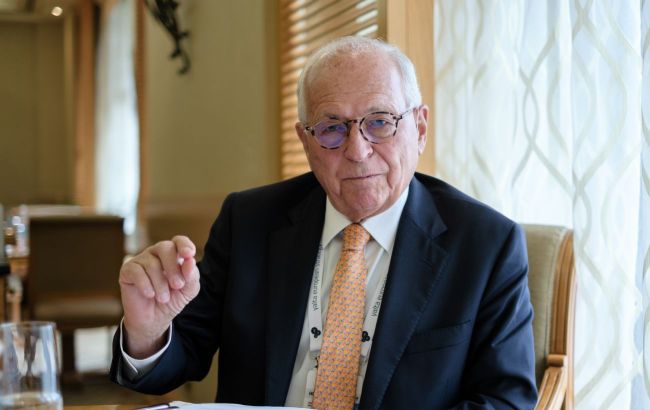'Europe has heard the shot and has woken up.' Ischinger on America's role in European security
 Wolfgang Ischinger, longtime chairman of the Munich Security Conference (Photo: Vitalii Nosach/RBC-Ukraine)
Wolfgang Ischinger, longtime chairman of the Munich Security Conference (Photo: Vitalii Nosach/RBC-Ukraine)
Longtime chairman of the Munich Security Conference, Wolfgang Ischinger, believes Europe began taking responsibility for its own security after a series of sharp US statements.
At the Munich Conference in February, US Vice President J.D. Vance delivered a high-profile speech that shocked European politicians and the public. Many expected the continent to “wake up.”
According to Wolfgang Ischinger, Europe did respond—though not exactly in the way Vance had predicted.
"I would give the United States, I would give Donald Trump credit for having pushed, finally, after so many years, having pushed Europe into finally doing much more for our own security," Ischinger noted.
He added that for many years, Europe’s security was almost entirely dependent on the US, which did not always make sense.
"So I would give him credit for that. In other words, yes, Europe has heard the shot and has woken up," the chairman of the Munich Security Conference emphasized.
Cultural and social issues
Ischinger also recalled that Vance's speech touched on cultural and social topics - such as the so-called "woke agenda," as well as racial, social, and gender justice, and migration.
According to him, the Trump administration, to some extent, equated mainstream Europe with the "nasty Democrats" in the US:
"We're not friends; we're the problem. We're not part of the solution, we're part of the problem," Ischinger said.
He believes that while the early parts of the speech might have sounded aggressive, it's not worth dwelling on that for too long.
Transatlantic dialogue continues
Three months later, in May, a conference was held in Washington, where Vance agreed to speak again. Ischinger hosted him on stage and asked questions.
"This was totally okay. No more conflict about fundamental values, interpretation of freedom of speech. These issues were not touched upon. We had a meaningful discussion about China, the Middle East, Russia, Ukraine, the transatlantic relationship in general, the role of NATO, etc," Ischinger said.
In his view, the initial nervousness of the Trump administration has passed, and now the White House has begun to realize the importance of allies.
"Maybe in the early weeks of the Trump administration, in February, there was still a lot of nervousness, and they had to make quick speeches, etc. I think now things have started to settle down a little more," he summarized.
Munich Security Conference
At the February conference, Vance criticized Europe for relying too heavily on the US in matters of security. He stressed that American taxpayers (for example, farmers in Idaho) were financing the security of European states without sufficient shared responsibility.
At that time, Vance also suggested the possibility of sending US troops to Ukraine if Russian leader Vladimir Putin refused to agree to a "just" peace deal.

